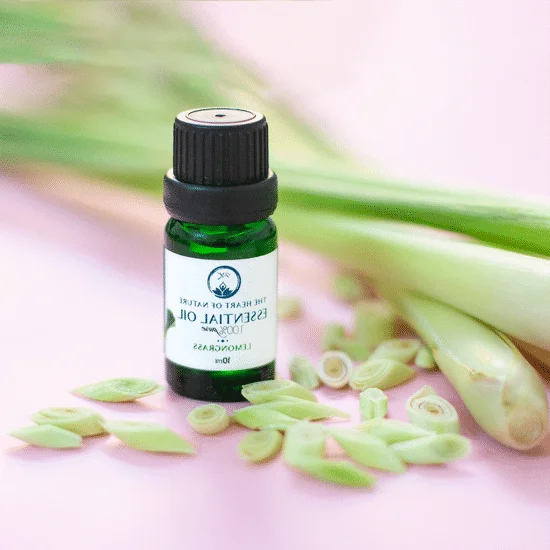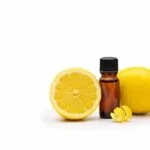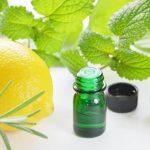Aromatherapy, the practice of using essential oils for therapeutic purposes, has gained popularity in recent years for its potential positive impact on overall well-being. However, when it comes to pregnancy, many expectant mothers are unsure whether aromatherapy is safe for them and their unborn babies. In this article, we will dive into the topic of aromatherapy during pregnancy, exploring the benefits, potential risks, and expert opinions surrounding this alternative therapy.
During pregnancy, women experience a multitude of physical and emotional changes. From morning sickness and back pain to hormonal fluctuations and stress, expectant mothers are often seeking natural remedies to alleviate these symptoms. Aromatherapy may hold promise as a complementary therapy to help with various discomforts during pregnancy. However, it is important to approach aromatherapy with caution and gain a comprehensive understanding of which essential oils are safe to use during this delicate time.
Before delving further into the specific benefits and potential risks of aromatherapy during pregnancy, it is crucial to educate oneself on the basics of this alternative therapy. Understanding how essential oils are derived from plants and how they can be used in various ways will lay the foundation for making informed decisions regarding their use during pregnancy.
Additionally, by gaining knowledge about different methods of application such as inhalation or topical use, pregnant women can better navigate the world of aromatherapy products that inundate the market.
In the subsequent sections of this article, we will explore in detail the potential benefits that aromatherapy can bring to pregnant women’s lives. We will delve into specific essential oils that are considered safe during pregnancy and discuss those that should be avoided due to their potential harm on pregnancy outcomes.
By providing evidence-based information on both sides of the argument regarding aromatherapy’s safety during pregnancy, we aim to equip expectant mothers with all necessary insights so they can make informed decisions about incorporating this alternative therapy into their routine.
The Benefits of Aromatherapy
Aromatherapy is a holistic practice that involves using essential oils from plants to promote physical and psychological well-being. Many pregnant women wonder if aromatherapy is safe during pregnancy and if it can offer any benefits. This section will explore the potential positive impact of aromatherapy on pregnant women.
- Relaxation and stress relief: Pregnancy can be a stressful time, both physically and emotionally. Aromatherapy can help pregnant women relax and unwind, reducing stress levels. Certain essential oils, such as lavender or chamomile, are known for their calming properties and can help promote better sleep quality.
- Alleviating common pregnancy discomforts: Pregnancy often comes with a range of discomforts, including nausea, back pain, and swollen ankles. Aromatherapy can provide relief from these symptoms. For example, ginger essential oil may help alleviate nausea, while peppermint oil can soothe muscle pain.
- Mood enhancement: Hormonal changes during pregnancy can lead to mood swings and feelings of anxiety or depression. Aromatherapy can help uplift the mood and promote emotional well-being. Essential oils like citrus (such as lemon or orange) are known for their uplifting properties, while rose or ylang-ylang may help create a sense of calmness.
When using aromatherapy during pregnancy, it is crucial to take certain precautions to ensure safety for both the expectant mother and the baby. Next in this article, we will explore essential oils that should be avoided during pregnancy to minimize potential risks.
Essential Oils to Avoid
During pregnancy, it is important for expectant mothers to exercise caution when using aromatherapy. While many essential oils can be beneficial and safe, there are certain fragrances that should be avoided as they could potentially harm the pregnancy. It is crucial for pregnant women to be aware of these essential oils to ensure their safety and the well-being of their unborn child.
One of the main essential oils that should be avoided during pregnancy is clary sage. This oil has been known to induce labor and stimulate contractions. As such, it is best to steer clear of clary sage until after giving birth. Additionally, pregnant women should also avoid using basil essential oil, especially in its concentrated form. Basil has properties that could potentially cause adverse effects on hormone levels and blood flow during pregnancy.
Another fragrance to avoid during pregnancy is wintergreen essential oil. Wintergreen contains high levels of methyl salicylate, which is similar to aspirin. Using wintergreen during pregnancy could increase the risk of bleeding or platelet disorders in both mother and baby. Similarly, Juniper berry essential oil should not be used by pregnant women due to its potential uterine-stimulating effects.
Other essential oils that are advised against during pregnancy include rosemary, eucalyptus, cinnamon bark, and pennyroyal. These oils have varying properties that may pose risks such as inducing contractions or affecting blood pressure levels. It’s important for pregnant women to thoroughly research and understand which fragrances are safe before incorporating aromatherapy into their routine.
Safe Essential Oils for Pregnancy
Aromatherapy can be a safe and effective way for pregnant women to find relief from common discomforts and promote overall well-being. However, it is essential to choose the right essential oils that are safe for pregnancy. In this section, we will provide a comprehensive guide to using aromatherapy safely during pregnancy.
Lavender Oil
Lavender oil is one of the most popular essential oils used during pregnancy. It is known for its calming and relaxing properties and can help alleviate stress, anxiety, and insomnia, which are common issues experienced by pregnant women. Lavender oil can also be useful in reducing nausea and improving sleep quality.
Chamomile Oil
Chamomile oil is another excellent choice for pregnant women due to its gentle and soothing properties. It can help relieve symptoms of morning sickness, promote relaxation, and improve sleep quality. However, please note that chamomile oil should be used in moderation as excessive use may induce contractions.
Ylang Ylang Oil
Ylang ylang oil is a fragrant essential oil that has a calming effect on the mind and body. This oil can help alleviate mood swings and reduce anxiety during pregnancy. Additionally, it may also promote healthy hair growth when applied topically in a safe dilution.
Citrus Oils
Citrus oils such as orange, lemon, grapefruit, or tangerine are generally safe for use during pregnancy when used in moderation. These oils have uplifting properties that can boost mood and provide an energy boost during times of fatigue or low energy levels.
It’s important to remember that each person may react differently to essential oils, including pregnant women. Therefore, always perform a patch test before using any new essential oil and consult with your healthcare provider or a certified aromatherapist before incorporating aromatherapy into your pregnancy routine. They can provide personalized guidance and advise on specific essential oils to meet your individual needs and health conditions.
Using essential oils safely during pregnancy involves proper dilution, avoiding internal use, and being mindful of potential allergies or sensitivities. It is also recommended to opt for high-quality, pure essential oils from reputable brands to ensure their safety.
Potential Risks and Precautions
While aromatherapy can offer numerous benefits for pregnant women, it is essential to be aware of the potential risks and take necessary precautions to ensure a safe experience. Understanding the possible side effects and learning how to minimize them is crucial in maintaining the well-being of both mother and baby.
One significant risk associated with aromatherapy during pregnancy is skin irritation or allergic reactions. Some essential oils can be highly concentrated and may cause adverse reactions when applied directly to the skin or used in high concentrations.
It is important for pregnant women to perform a patch test before using any new essential oil on their skin. This involves applying a small amount to a small area of skin and waiting for 24 hours to check for any negative reactions such as redness, itchiness, or swelling.
Another potential risk of aromatherapy during pregnancy is the inhalation of harmful substances. Certain essential oils emit volatile organic compounds (VOCs) that may be toxic when inhaled in large amounts.
Pregnant women should avoid using diffusers that release continuous streams of strong fragrance into the air, as they may increase exposure to these compounds. Instead, it is recommended to use a few drops of diluted essential oil on a tissue or pillowcase for inhalation purposes, ensuring proper ventilation in the room.
Moreover, pregnant women should exercise caution when choosing essential oils that have emmenagogue properties. Emmenagogue substances are known to stimulate blood flow in the pelvic area and uterus, potentially leading to contractions and menstruation-like symptoms. Essential oils such as basil, sage, rosemary, clary sage, juniper berry, cinnamon bark, and peppermint fall into this category and should generally be avoided during pregnancy unless specifically advised by a healthcare professional.
Expert Opinions
Aromatherapy is a popular form of alternative medicine that uses essential oils to promote relaxation, reduce stress, and improve overall well-being. However, when it comes to using aromatherapy during pregnancy, many women have concerns about its safety. In this section, we will explore the expert opinions on the safety of aromatherapy during pregnancy.
According to professionals in the field, aromatherapy can be safe for pregnant women if used correctly and with caution. The key is to choose essential oils that are considered safe for use during pregnancy and to use them in moderation. It is recommended to consult with a qualified aromatherapist or healthcare provider who has experience working with pregnant women before incorporating aromatherapy into your pregnancy routine.
Some experts believe that certain essential oils can offer numerous benefits during pregnancy. For example, lavender oil is known for its calming properties and can help relieve anxiety and promote better sleep. Peppermint oil may help alleviate morning sickness symptoms such as nausea and vomiting. However, it is important to note that individual reactions may vary, so it is crucial to listen to your body and discontinue use if any adverse effects occur.
On the other hand, some professionals advise against using certain essential oils during pregnancy due to potential risks. Oils such as basil, rosemary, sage, and clary sage are believed to stimulate contractions and should be avoided until labor is near. Additionally, some citrus oils like lemon or bergamot can cause photosensitivity when applied topically and should be used with caution.
Alternative Therapies
Alternative Therapies for Pregnant Women
While aromatherapy can offer numerous benefits to pregnant women, it is understandable that some individuals may prefer non-aromatic alternatives. Luckily, there are several other holistic therapies that can promote well-being during pregnancy without the need for essential oils or fragrances. These alternative therapies provide a range of benefits and can be safely incorporated into a woman’s prenatal routine.
Massage Therapy
Massage therapy is a popular alternative therapy for pregnant women looking to relax and alleviate physical discomforts. Prenatal massage, specifically designed for expecting mothers, uses different techniques to ease muscle tension, improve circulation, reduce swelling, and relieve common pregnancy symptoms such as back pain and headaches. It also offers emotional support and promotes a sense of well-being.
Acupuncture
Acupuncture is an ancient Chinese practice that involves inserting thin needles into specific points on the body. This therapy has been shown to effectively alleviate various pregnancy-related issues like morning sickness, nausea, insomnia, anxiety, and back pain. According to experts, acupuncture stimulates the nervous system and releases endorphins, helping pregnant women find relief from discomfort.
Yoga
Yoga is another excellent alternative therapy during pregnancy as it focuses on gentle stretches, breathing exercises, and meditation techniques that promote relaxation and flexibility. Prenatal yoga classes are tailored specifically to meet the needs of expectant mothers by incorporating poses that accommodate growing bellies and address common pregnancy concerns such as pelvic pain or low back discomfort.
Hydrotherapy
Hydrotherapy involves immersing oneself in water for therapeutic purposes. Whether through soaking in a warm bath or participating in water aerobics classes specifically tailored for pregnant women, hydrotherapy can help reduce joint pain, edema (swelling), muscle tension, and stress levels while providing a soothing and weightless sensation for the body.
When exploring alternative therapies, it is important for pregnant women to consult with their healthcare providers or a qualified therapist before starting any new treatments. This will help ensure that the chosen therapy is safe and appropriate for their specific needs and medical conditions.
By considering these non-aromatic options, pregnant women can still achieve holistic well-being without relying solely on aromatherapy. Each alternative therapy offers unique benefits, helping expectant mothers find relief from pregnancy discomforts while promoting relaxation and overall wellness.
Tips for Choosing and Using Aromatherapy Products
When it comes to choosing and using aromatherapy products during pregnancy, it is essential for expectant mothers to take certain precautions to ensure their safety. Here are some guidelines for pregnant women to safely navigate the market and make informed decisions about selecting and using aromatherapy products:
- Consult with a healthcare professional: Before incorporating any new product or practice into your pregnancy routine, it is important to consult with your healthcare provider. They can provide guidance on which essential oils are safe and appropriate for you during pregnancy, taking into consideration any pre-existing conditions or complications you may have.
- Research reputable brands: With the increasing popularity of aromatherapy, there is a wide range of products available in the market. To ensure safety and quality, research and choose reputable brands that specialize in producing aromatherapy products specifically designed for pregnant women.
- Read labels carefully: When purchasing aromatherapy products such as essential oils, diffusers, or massage oils, thoroughly read the labels. Look for indications that the product is specifically formulated for use during pregnancy. Avoid products that contain potentially harmful ingredients such as synthetic fragrances or chemicals.
- Dilute essential oils properly: Essential oils are highly concentrated substances and should always be diluted before use on the skin or in a diffuser. Pregnant women should follow recommended dilution ratios provided by experts to minimize any potential risk of adverse effects.
- Patch test before use: Before applying any new essential oil topically, perform a patch test on a small area of skin to check for any allergic reactions or irritations. This precautionary measure can help pregnant women identify any sensitivities they may have before widespread application.
- Avoid unsafe methods of administration: Pregnant women should avoid certain methods of administration that carry higher potential risks, such as ingesting essential oils or applying them directly to the skin without proper dilution. Stick to safer methods such as aromatherapy diffusers or diluted application through massage oils.
By following these guidelines, pregnant women can navigate the market for aromatherapy products safely, minimizing any potential risks and maximizing the benefits that these products can offer during pregnancy. Remember that every individual is different, and what may work for one person may not work for another. It is crucial to listen to your body and consult with a healthcare professional to ensure your safety and well-being throughout your pregnancy journey.
Conclusion
In conclusion, the question of whether aromatherapy is safe during pregnancy requires careful consideration. While there are potential benefits to using essential oils during this time, pregnant women must also be aware of the risks and take necessary precautions.
Firstly, it is important to acknowledge the potential positive impact that aromatherapy can have on pregnant women. The use of certain essential oils can help alleviate symptoms such as nausea, fatigue, and stress, promoting a sense of relaxation and well-being. Additionally, aromatherapy can be a natural remedy for common discomforts experienced during pregnancy.
However, it is equally important to identify fragrances that could potentially harm pregnancy. Certain essential oils should be avoided due to their potential to stimulate uterine contractions or cause other adverse effects on fetal development. Pregnant women should exercise caution when choosing essential oils and consult with a healthcare professional before incorporating them into their routine.
Ultimately, making an informed decision about whether to use aromatherapy during pregnancy requires weighing the pros and cons. It is crucial for pregnant women to educate themselves about the risks and benefits associated with different essential oils and consult with professionals as needed. By doing so, they can navigate the market safely and make choices that prioritize both their own well-being and that of their unborn child.
Frequently Asked Questions
What essential oils should be avoided during pregnancy?
During pregnancy, it is important to be cautious when using essential oils as some can potentially harm the developing fetus or cause contractions. Essential oils that should generally be avoided during pregnancy include basil, cinnamon, clary sage, clove, fennel, juniper berry, rosemary, and thyme.
These oils are known to have stimulating properties that could potentially trigger contractions or affect hormone levels in a way that is not safe during pregnancy. It is always recommended to consult with a healthcare professional before using any essential oils during pregnancy.
What herbs and oils should be avoided during pregnancy?
There are certain herbs and oils that should be avoided during pregnancy to ensure the safety of both the mother and the baby. Some common herbs and oils that are best avoided during pregnancy include ginseng, dong quai, licorice root, pennyroyal oil, wintergreen oil, and certain types of essential oils such as birch and wormwood.
These substances have been associated with adverse effects on pregnancy such as increased risk of miscarriage or premature labor. It is crucial to consult with a healthcare provider or a qualified herbalist for guidance on safe herb and oil usage during pregnancy.
Is lavender safe to consume during pregnancy?
Lavender is generally considered safe when used externally or in small amounts during pregnancy. However, it is advised to exercise caution when considering lavender for internal consumption during this time.
While there have been no reports suggesting major risks associated with consuming small amounts of lavender tea or including culinary lavender in dishes occasionally, it’s recommended to avoid excessive consumption of lavender products including large quantities of lavender tea or taking concentrated lavender supplements internally without proper medical advice. As with any substance consumed during pregnancy, it’s always advisable to consult with a healthcare provider before introducing new herbs into your diet.

Are you looking for a natural way to improve your health and wellbeing?
If so, aromatherapy may be the answer for you.





